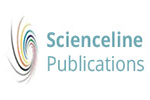(2021) Antiviral Effects of Plant Extracts Used in the Treatment of Important Animal Viral Diseases. World's Veterinary Journal. pp. 521-533. ISSN 23224568 (ISSN)
|
Text
WVJ 11(4) 521-533, December 25, 2021.pdf Download (723kB) |
Abstract
The goal of this review was to highlight some plant species that have significant antiviral activity against DNA and RNA viruses in vitro and in vivo although more research is needed to address safety issues, drug interactions, and the possibility of using them in combination with other natural products. Viral infection plays an important role in human and animal diseases. Although there have been advances in immunization and antiviral drugs, there is still a lack of protective vaccines and effective antiviral drugs in human and veterinary medicine. The lack of effective antivirals necessitates the search for new effective antiviral compounds. Plants are naturally gifted at synthesizing antiviral compounds. They are rich sources of phytochemicals with different biological activities, including antiviral activities as a result of advanced analytical chemistry, standard virus assays, and development of standardization and extraction methods. Plant extracts have a wide variety of active compounds, including flavonoids, terpenoids, lignans, sulphides, polyphenolics, coumarins, saponins, furyl compounds, alkaloids, polyines, thiophenes, proteins, and peptides. Moreover, certain volatile oils have indicated a high level of antiviral activity. Replication, assembly, and release, as well as targeting virus host-specific interactions capable of inhibiting several viruses, could help the development of broad-spectrum antivirals for the prevention and control of viral pathogens. The in vitro antiviral activities of Erythroxylum deciduum, Lacistema hasslerianum (chodat), Xylopia aromatica, Heteropteris aphrodisiaca, Acacia nilotica (gum arabic tree), Lippia graveolens (Guettarda angelica (Velvetseed), Prunus myrtifolia, and Symphyopappus plant extracts can inhibite viral replication, and interfer with the early stages of viral adsorption of DNA viruses. However, Boesenbergia rotunda plant extracts have inhibited RNA viruses. A potent anti-SARS-CoV-2 inhibitor with B. rotunda extract and panduratin A after viral infection drastically suppresses SARS-CoV-2 infectivity in Vero E6 cells.
| Item Type: | Article |
|---|---|
| Keywords: | Bovine herpes virus type-1, Bovine infectious, Bovine infectious cell protein 4, Buffalo pox virus, Foot-and-mouth disease, Plant extracts, Rotaviruses |
| Subjects: | Q Science > Q Science (General) S Agriculture > SF Animal culture |
| Divisions: | World's Veterinary Journal (WVJ) |
| Page Range: | pp. 521-533 |
| Journal or Publication Title: | World's Veterinary Journal |
| Journal Index: | Scopus |
| Volume: | 11 |
| Number: | 4 |
| Publisher: | Scienceline Publication, Ltd |
| Identification Number: | https://doi.org/10.54203/scil.2021.wvj67 |
| ISSN: | 23224568 (ISSN) |
| Depositing User: | Dr. Alireza Sadeghi |
| URI: | http://eprints.science-line.com/id/eprint/547 |
Actions (login required)
 |
View Item |

